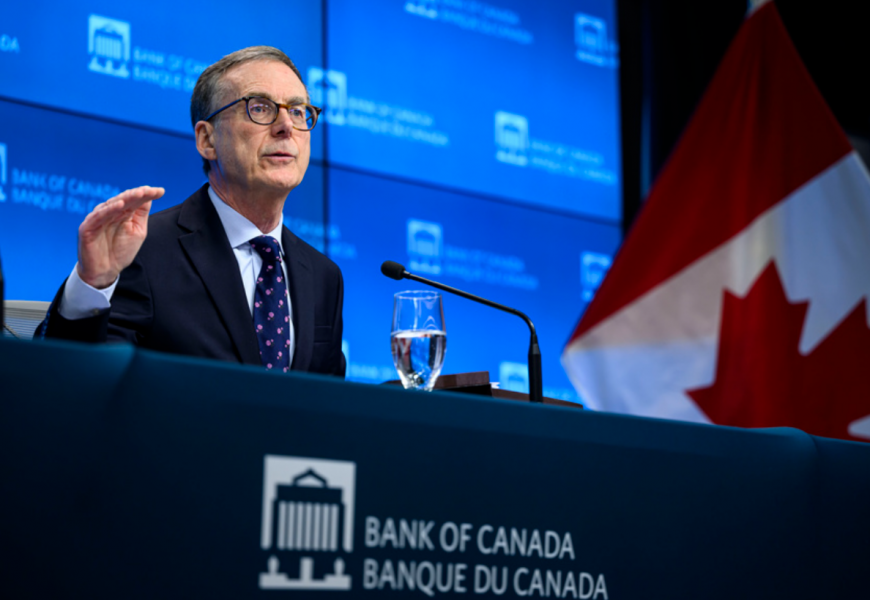Who Is Tiff Macklem?
Tiff Macklem is the Governor of the Bank of Canada (appointed June 2020) and one of the central figures in Canada’s economic response to mounting global pressures. 2Public Policy Forum+2 His role places him in the center of monetary policy decisions, interest rate adjustments, and pronouncements about structural economic challenges.
He has long experience in public economics — joining the Bank of Canada in 1984, later serving in research capacities, as Senior Deputy Governor, and in the Department of Finance. bank
In recent years, Macklem’s public statements and actions have signaled that Canada is facing not just a cyclical downturn—but deeper structural stress. Public Policy Forum+2Global News+2
Canada’s Crisis: What’s Going Wrong
Trade Shocks & Tariff Pressure
One of the most acute challenges Macklem and Canada face is trade disruption. Macklem has repeatedly warned that U.S. tariffs and unpredictable trade policy have placed Canada’s export sectors under severe strain. Public Policy Forum+3+3Global News+3 In his recent speeches, he lamented that “trade is under attack.” Global News
Exports dropped sharply in Q2 2025, and industrial production in tariff-exposed sectors was weak. bankofcanada.ca+3bankofcanada.ca Macklem has cautioned that monetary policy alone can’t reverse the damage caused by trade shocks. bankofcanada.ca+2Public Policy Forum+2
Monetary Policy Moves & Interest Rates
In response to slower growth and rising uncertainty, Macklem’s Bank of Canada has taken action:
- In a recent decision, the Bank cut its policy interest rate by 25 basis points, bringing it down to 2.5%. bankofcanada.ca+3Public Policy Forum+3
- In that same policy announcement, Macklem cited a GDP decline of 1.6% in Q2, attribution to weaker exports, slower business investment, and trade disruptions. bank
- He emphasized that uncertainty—especially around U.S. trade policy—has caused businesses to pause investment plans. 2Public Policy Forum+2
- Despite inflation showing some signs of easing, core inflation remains a concern, limiting how aggressively the Bank can cut rates. 2Public Policy Forum+2
Thus the Bank’s maneuvering is constrained by conflicting pressures: stimulating growth vs controlling inflation vs safeguarding financial stability.
Structural Weaknesses & Long-Term Drift
Beyond cyclical disturbances, Macklem has stressed that Canada suffers from deep structural headwinds:
- Weak productivity growth: Canada’s productivity gains have been limited, a problem Macklem often describes as an “Achilles’ heel.” 2Public Policy Forum+2
- Interprovincial trade barriers and regulatory drag: Macklem has called for the elimination of internal trade barriers (e.g. recognition of labour credentials between provinces) and faster regulatory approvals. ATB Financial+2Public Policy Forum+2
- Overreliance on the U.S. market: Canada’s heavy dependence on the U.S. for trade makes it vulnerable to U.S. shifts. Macklem repeatedly urges diversification of export markets. Global News+3bankofcanada.ca+3Public Policy Forum+3
- Capital and investment shortfalls: Many businesses are pausing capital expenditure under uncertainty. bankofcanada.ca+1
Macklem argues that structural reform is no longer optional—it’s essential. bankofcanada.ca+2Public Policy Forum+2
Macklem’s Public Messaging & Shifts in Tone
In 2025, Macklem has increasingly used public platforms to push beyond mere technical central bank speak. Some shifts:
- He openly framed Canada’s situation as more than a tactical battle: a “new reality” requiring adaptation. Public Policy Forum
- He’s taken on trade policy publicly, even though central bankers often avoid such terrain. Public Policy Forum+2Global News+2
- In recent speeches, he has named specific structural reforms—beyond typical monetary levers—to push provinces and federal authorities to act. ATB Financial+2Public Policy Forum+2
- He stresses urgency, not optimism: “It’s not going to feel very good. It’s slow growth.” Public Policy Forum
Many observers note that Macklem is pushing the boundaries of his traditional role, trying to wake up policymakers and the public. The Logic
Risks, Impacts & What Lies Ahead
Escalation to Recession?
Analysts warn that if trade conflicts deepen or policy response lags, Canada could slip into a year-long recession. Macklem himself has flagged scenarios where economic contraction drags on. bank
Unemployment is easing upward; business confidence is fragile. bankofcanada.ca+1
Impact on Households & Sectors
- Housing and debt stress: As interest rates stay above historic lows, households with high leverage are vulnerable.
- Export-oriented industries: Manufacturing, natural resources, and sectors tied to U.S. supply chains are under acute pressure.
- Provincial divergences: Provinces with more diversified economies or resource wealth could fare better; those tied to trade or manufacturing may suffer more.
The Policy Dilemma
Macklem’s prescriptions point to a two-track approach:
- Monetary relief, but cautiously calibrated, given inflation risk.
- Structural reforms, which fall beyond the Bank’s direct control—requiring political will:
- Removing interprovincial trade barriers
- Recognizing labour credentials across provinces
- Diversifying export markets
- Speeding regulatory approvals
- Investing in infrastructure and supply chain capacity
- Encouraging innovation and productivity growth
If those reforms do not follow the rhetoric, the pain from cyclical shock may crystallize into long-term stagnation.
Conclusion: Macklem’s Balancing Act in Crisis
Tiff Macklem sits at a formidable junction: an economic climate riddled with external shocks, internal drag, and political constraints. His challenge is not just to manage rates or inflation, but to serve as both guardian and provocateur: pushing other actors (governments, provinces, businesses) to adapt.
Whether Canada weathers this storm or slides into deeper stagnation may depend less on technical policy tweaks and more on structural courage—and whether Macklem’s warnings translate into action.









